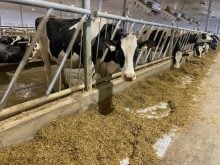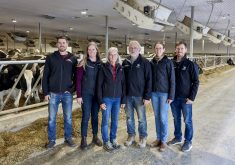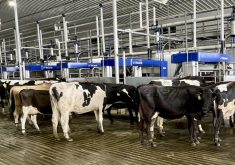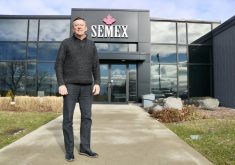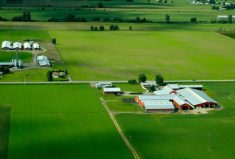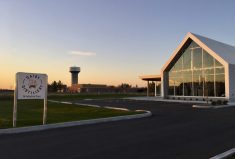Farmers who diversify their dairy operations can make it work with luck, great planning and a willingness to take risks.
The Canadian Dairy XPO’s new Canadian Dairy Business Conference brought together four farmers who have diversified so milking cows is just part of what they do.
Why it matters: Dairy farmers who want to grow their business have to look beyond milk to increase revenues.
Read Also
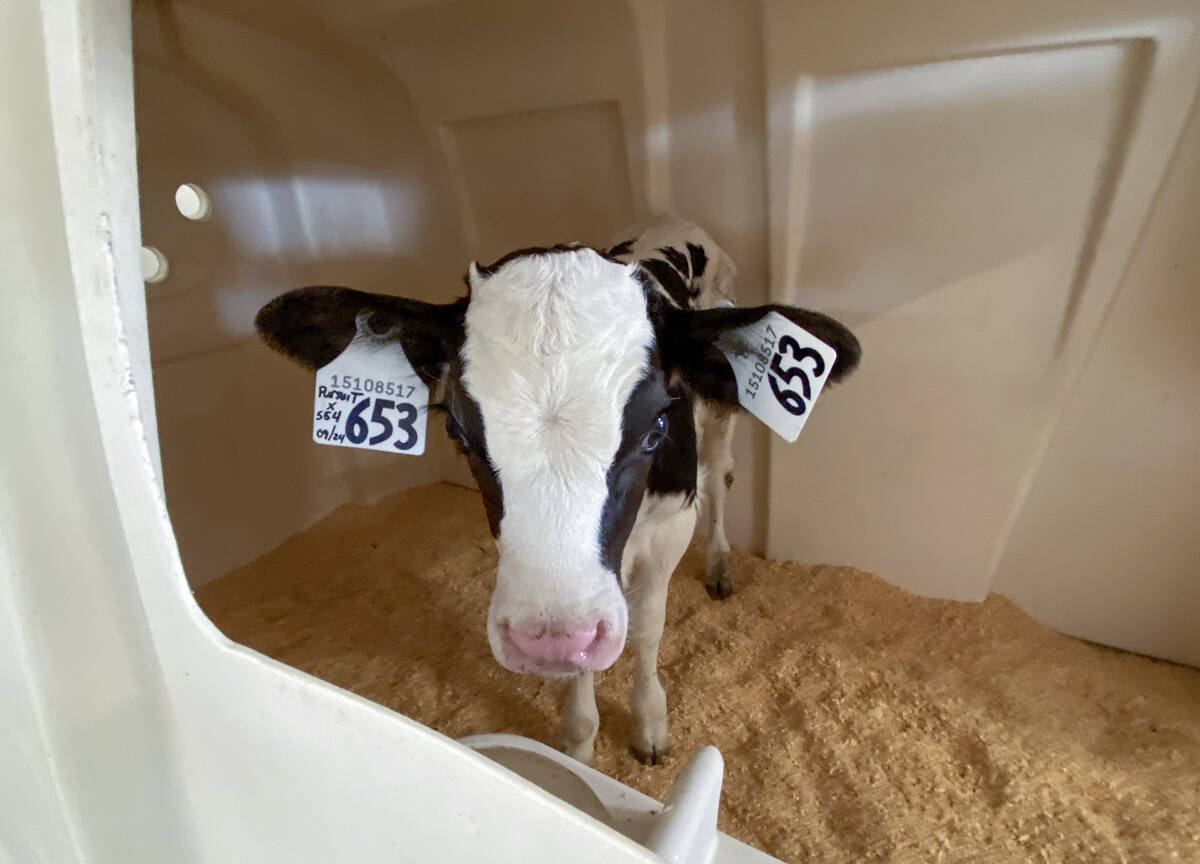
Lactanet turns methane expertise into business opportunity
Lactanet’s new fee-for-service breeding tool initiative to reduce greenhouse gas emissions in Canadian and Swiss Holstein herds will launch in April 2026.
Bonnie den Haan and her family milk cows and also process milk, and have created a distribution system across a good part of the province for their dairy products and other small food businesses.
In Quebec, Joel LePage of JM Valley milks cows and has diversified into poultry and an ice cream shop.
Gilbert Matheson farms in New Brunswick and, along with dairy cows, has poultry, mills feed for other farmers in the area and does custom work.
Korb Whale of Clovermead Farms near Drayton and his family have a biogas digester and purchased a second farm where milk is processed on site.
Willingness to take risks and then support the implications of those risks separate these farmers from others who do not diversify.
“I sometimes feel humbled when you’re around people who make good decisions,” says Whale. “And I question my own and wonder if I’ve made good decisions over the years. We get to make electricity, heat, fertilizer, bedding, and get paid to take the waste at the same time,” he says of the farm’s biogas digester.
A second significant decision for the Whale family was the purchase of Mapleton organic farm, which milks with an automated system and has processed ice cream on the farm for 20 years.
Between the organic processing and the biogas digester, Whale has learned to manage a lot of regulations.
Near Alliston, Ont. the den Haan family has grown their dairy farm business by taking risks, including starting up the farm in the 1980s with a 20 per cent interest operating loan.
John and Bonnie den Haan’s barn burned nine months after they were married, but they persevered.
“We were looking for something exciting to do, so we got into the processing in a small way in 2012,” says Bonnie. She knew people were looking for milk from a farm that they could trust and wasn’t the processed dairy beverage that entered the market at that time.
“People were telling us they couldn’t drink milk anymore.”
But the den Haans weren’t done. They built a new robotic dairy barn in 2018 that included two milk lines to segregate milk with the easier-to-digest A2 protein from milk with A1 protein.
Daughter Emily manages the cows and Marianne runs the processing side. Their sons Scott and Andrew work in the dairy industry elsewhere.
The farm’s distribution arm has five trucks on the road delivering the farm’s own Sheldon Creek Dairy milk as well as products from other small food and craft makers. The family also has a beef herd and an on-farm store.
The result is a family operation firmly entrenched in the dairy sector because of risks taken by multiple generations.
Business diversification at Gilbert Matheson’s farm in New Brunswick resulted from reducing risks unique to livestock farms in the province.
He and his wife, Stacy, started with a hatching egg operation and some beef cows, but they always wanted to be dairy farmers. In 2008, they applied to the new entrant program.
“We got approved and built a new barn and started and took on lots of debt,” he said. The dairy and poultry operations continued to grow and the couple looked for ways to control input costs. In the Maritimes, that risk is often related to the cost of commodities.
“We always were kind of at the mercy of mills.”
The Mathesons became their own feed mill, enabling them to lock in ingredient pricing, forward contract and save milling fees. Once they were making their own poultry feed and dairy supplement, neighbours asked if they could buy for their herds.
Now, 75 per cent of what comes from the mill goes to other farms.
Matheson said they couldn’t find custom operators to do fieldwork, so they started their own business. Some of the same producers who get feed from the Mathesons asked about custom work, and that part of the business grew too. It now has 23 employees.
Joel LePage of JM Valley farm in Quebec has expanded more slowly than the others, but has jumped at opportunities to diversify his business.
He and his wife bought their dairy farm in 2012 from two brothers. They’ve almost doubled the milk produced in the same barn. In 2015, they bought a small farm two hours away, where they built a layer barn with 10,000 free-run hens.
Then they decided to raise pullets, and built a barn for that. In 2021 they saw an ice cream shop nearby for sale on Facebook and added that to their diverse businesses.
“I save $300 to $400 a year on ice cream because now it’s free,” he said.
What are the biggest challenges of sudden or rapid growth?
At the Canadian Dairy Xpo’s Canadian Dairy Business Conference, four farmers who have diversified their dairy operations talked about the challenges of managing those changes. It was mostly about people.
Gilbert Matheson: HR falls on my shoulders most of the time, but we’re going to have to outsource that. It takes a tremendous amount of time.
Joel LePage: Make sure you have balance. It’s easy to say ‘go buy this’, but you have to keep the accountant and the wife happy. Don’t forget that. The accountant’s advice is pretty valuable.
Bonnie den Haan: We’re looking right now for a controller. If we were to do it differently, I would have hired a top-notch bookkeeper or controller right off the top. HR is a huge issue. Our daughters do it and it’s a big time suck, but a big reward for it if you get the right people. We have an HR consulting company on retainer.
Korb Whale: I was the key person fairly early on in the digester front and it was a tough time. I understood how they worked (he is educated as an engineer), but if I look back now on my notes, I was so so naïve. My FCC account manager didn’t balk at the binders I brought her and she was my advocate in the lending department. That gave me the confidence that if I did the background work and built up my ability to manage, it would work.






